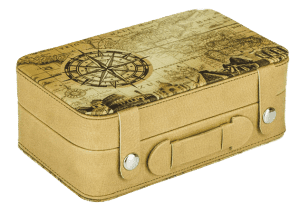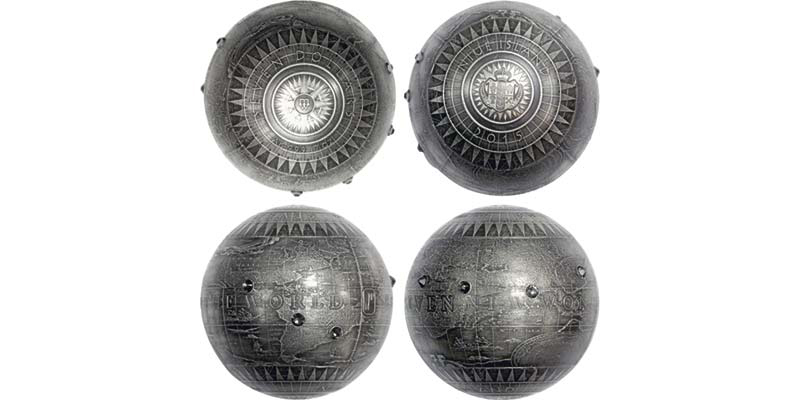COIN WORLD | By Jeff Starck, Coin World | February 23, 2015
The Mint of Poland has developed new minting technology to strike spherical coins. The first coin with this technology shows a 1638 world map by Dutch cartographer Willem Janszoon Blaeu and highlights the Seven New Wonders of the World
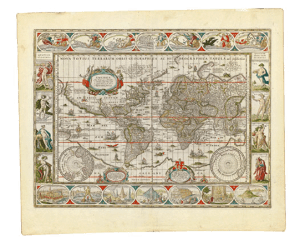
New spherical coin struck for Niue Island ups ante of minting technology
The coin features a design based on the 1638 hand-drawn world map Nova totius terrarum orbis geographica ac hydrographica tabula created by eminent Dutch cartographer Willem Janszoon Blaeu. The map is in the collection of the Boston Public Library.
At different positions on the design’s historical map are seven Swarovski crystals, one for each of the Seven New Wonders of the World. The ”wonders” were announced July 7, 2007, after a global contest to select them.
The list features Chichen Itza (Mexico), Christ the Redeemer statue (Brazil), the Great Wall of China, Machu Picchu (Peru), the ancient city of Petra (Jordan), the Taj Mahal (India), and the Roman Colosseum (Italy).
The list features Chichen Itza (Mexico), Christ the Redeemer statue (Brazil), the Great Wall of China, Machu Picchu (Peru), the ancient city of Petra (Jordan), the Taj Mahal (India), and the Roman Colosseum (Italy).
New technology
To create a spherical coin, the Mint of Poland first prepared and evaluated a three-dimensional-model of the coin using Delcam’s modelling software ArtCAM. To assure the coin’s ideal spherical shape and map the images, engineers created a special six-piece die setup, with hammer (top) and anvil (bottom) dies joined with four collar dies on the sides.
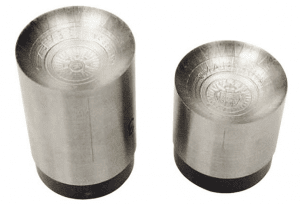
According to Kalukiewicz, mint technicians first used blank dies to strike test examples in copper. Then technicians struck copper and silver test strikes with dies bearing designs, learning that perfectly round blanks would not result in perfectly round coins.
The planchets were given a slightly raised, ridged area at the upper pole. This was necessary so the globular shape remained intact when the hammer die struck the planchet. It allowed the metal to flow just where the mint technicians needed it, to produce the spherical shape of the final product.
Kalukiewicz said it required 13 hours to laser-engrave each of the four pieces of the collar (for a total of 52 hours) used in striking this revolutionary new coin, and dozens of hours were needed to laser-engrave the hammer and anvil dies.
Two strikes from the press were needed, the first strike using 600 kilonewtons of force and the second strike using 650 kilonewtons of force.
Coin specifications
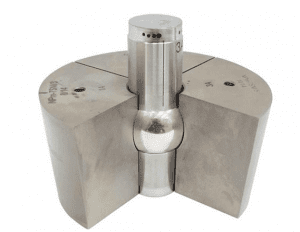
The coin has a diameter of 34 millimeters and weighs 217.7 grams.
The mintage limit is 1,007 pieces.
Both antique or oxidized and standard silver versions were created, but the Mint of Poland has not confirmed whether each version has a mintage of 1,007 pieces or if that limit will be distributed through both versions.
In addition, no distributor or pricing has been confirmed by press time Feb. 19. Coin World will report the information when it becomes available.
Both antique or oxidized and standard silver versions were created, but the Mint of Poland has not confirmed whether each version has a mintage of 1,007 pieces or if that limit will be distributed through both versions.
In addition, no distributor or pricing has been confirmed by press time Feb. 19. Coin World will report the information when it becomes available.
